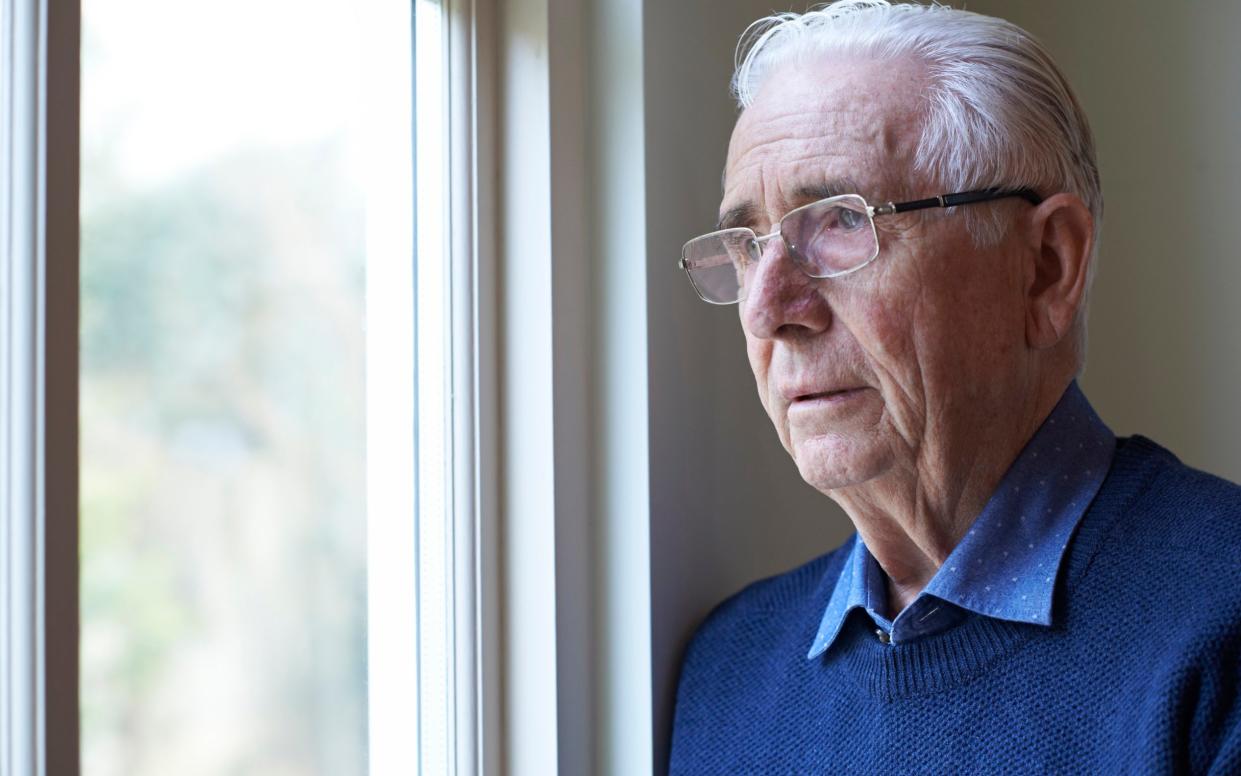Covid lockdowns ‘created hidden monster of loneliness’ in over-50s

Covid lockdowns created a “hidden monster” of lingering loneliness in older people, according to an expert in ageing.
Being unable to socialise for so long stripped people of their confidence - and many have failed to re-establish the friendships and social life they had before the pandemic took hold, Prof Rose Anne Kenny said.
Loneliness can also increase stress and shorten lifespan, the regius professor of physic at Trinity College, Dublin, warned.
She cited the Irish longitudinal study on ageing, which measures data on a large cohort of over-50s at two-year intervals, and looked at rates of loneliness and depression before, during, and after the pandemic.
“Loneliness amongst people over 50 increased three-fold during Covid. It has not gone back to pre-pandemic levels. It is about halfway where it was before,” Prof Kenny told an audience at the Hay Festival.
“So unfortunately there is a lingering long Covid, which is loneliness, amongst people over 50, which is almost like this hidden monster that is very hard to address. People have lost confidence, lost self-esteem.”
The findings of the Irish study are replicated in its English equivalent, said Prof Kenny, author of Age Proof.
She described loneliness as “one of the most toxic things we can do to ourselves” and said that if she could prescribe only one thing to boost wellbeing it would be “good, frequent engagement with friends”.
Prof Kenny added that only 20 per cent of our lifespan is dictated by our genes, with the rest down to environmental factors over which we have some control.
A sense of purpose
She said her research was not about extending lifespan but “about extending healthy lifespan”.
“It’s about condensing the period of time at the end of life where one experiences disability so that there is a healthier, probably better quality of life”, she added.
“At the moment in the UK we spend 20 per cent of our entire lifespan with ill health, so we’ve got to get that down.
“And there are things that we know influence epigenetics - biological ageing - and that we know are very dominant in people with longer, healthier lifespans: quality relationships, friendships, lower stress, creativity, exercise and having a purpose in life.”
Maintaining a sense of purpose can be difficult for people who have retired, Prof Kenny said, but it is crucial.
She added: “Lots of people, when they retire, say, ‘I’m invisible. I no longer have purpose.’ Purpose really, really matters.
“We've evolved to need a purpose - if you have no purpose then, from an evolutionary perspective, why are you here?
“But you can create that. We read purpose in everything. So when you get up in the morning, have a list of things to do today - then you’ve just created purpose.
“Studies have shown that knowing why you wake up in the morning makes you healthier, happier, and adds probably up to seven years to your lifespan.”
As for exercise, Prof Kenny said communities around the world with higher-than-average lifespans “move naturally throughout the day”.
She said: “There is no putting on the Lycra and beetling down to the gym for an hour, getting back into the car and going back home: ‘I’ve done my exercise.’
“Physical activity is an integral part of their day - walking, gardening, housework. It’s constant.”

 Yahoo News
Yahoo News 
